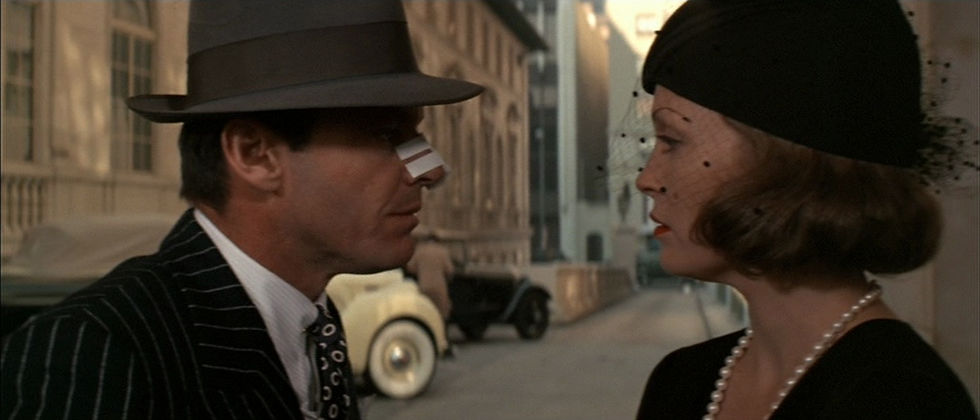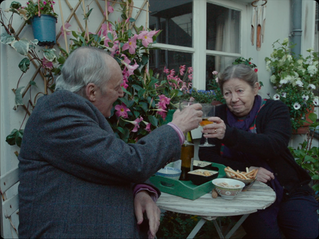Chinatown
- Charlotte Mansfield
- Sep 1, 2020
- 3 min read
Updated: Oct 28, 2020

A beautiful classic, Chinatown follows private investigator Jake Gittes (Jack Nicolson), through a multi-dimensional and timeless allegory of evil men. His monotonous work life becomes unhinged as he begins to discover a horrifying secret. We share Gittes’s view of the world, complemented by wonderful shots through his binoculars, reporter camera and the wing mirror of his car; as the audience we are invited in on his case. We learn new truths as he learns, and unravel the twisted events behind the investigator’s case involving the intriguing Mrs Mulwray (Faye Dunaway) and her father played terrifyingly by the late John Huston. Executed with grace, Polanski’s “Neo-noir” mystery inspired by the California Water Wars is anything but predictable, and is both a catalyst for many to follow (with homages including the likes of Who Killed Roger Rabbit?) and a love letter to the 1940s Film Noir genre.



Nicolson seamlessly portrays the sarcastic indifference of the ex-LAPD officer who has become outcast by former colleagues. While they mock his current tragic and sleazy line of work (uncovering marital infidelity), he appears physically ridiculous to even us in a nose cast for a portion of the film, before it is removed to reveal a kind and frustrated loner. As we realise his facade was perhaps adopted with the intention of self-preservation and numbing to his past, the film’s darker tone is heightened. Nothing less than captivating and elusive, Dunaway glides through the movie alongside and appears as an object of elegance and hope, without undermining her complexity as a pained and secretive woman. The haunting score by Jerry Goldsmith perfectly compliments the intensity of each scene, while Gittes’s wit adds a touch of lightness necessary to digest the sobriety. The sprinkling of jokes simultaneously adds to the level of tension, with the inappropriateness of each punchline building as the tone deepens. Meanwhile, foreboding mentions of Chinatown from early in the film pique curiosity, the squeak of a car being washed sounds more like a woman’s shriek, and the beep of a horn startles you in your seat.


In a similar fashion to Wim Wenders, who was praised in the 1980s for films such as Paris, Texas, Polanski provides a wonderful exploration of America as an outsider, adding a sense of underlying dread throughout, perhaps linked to his own past trauma surrounding Los Angeles. The drought-ridden landscape and dusky spectrum of colour suit the film’s gradual pace, alongside the pleasingly wide conversational shots, which are less back and forth and more purposeful with each expression unfolding slowly in front of us.

In viewing today, Chinatown is certainly more than a gut-wrenching story, depicting an omniscient fable of the ever-present power of the elite. Wealthy men have a terrifying hold on their world, strategically composing a web of deceit to maintain their place in the food chain. Gittes is our intelligent and cunning hero who navigates this maze already aware of this hold, and yet remains hopeful in his pursuit to lift the curtain and reveal the cruel monsters that lurk behind. And like Gittes, we are lured into the trauma that is expressed so beautifully it is hard not to revel in it, and is what leads us to return to the masterpiece and relive the spectrum of emotion at a time when it has never been more relevant.









Comments